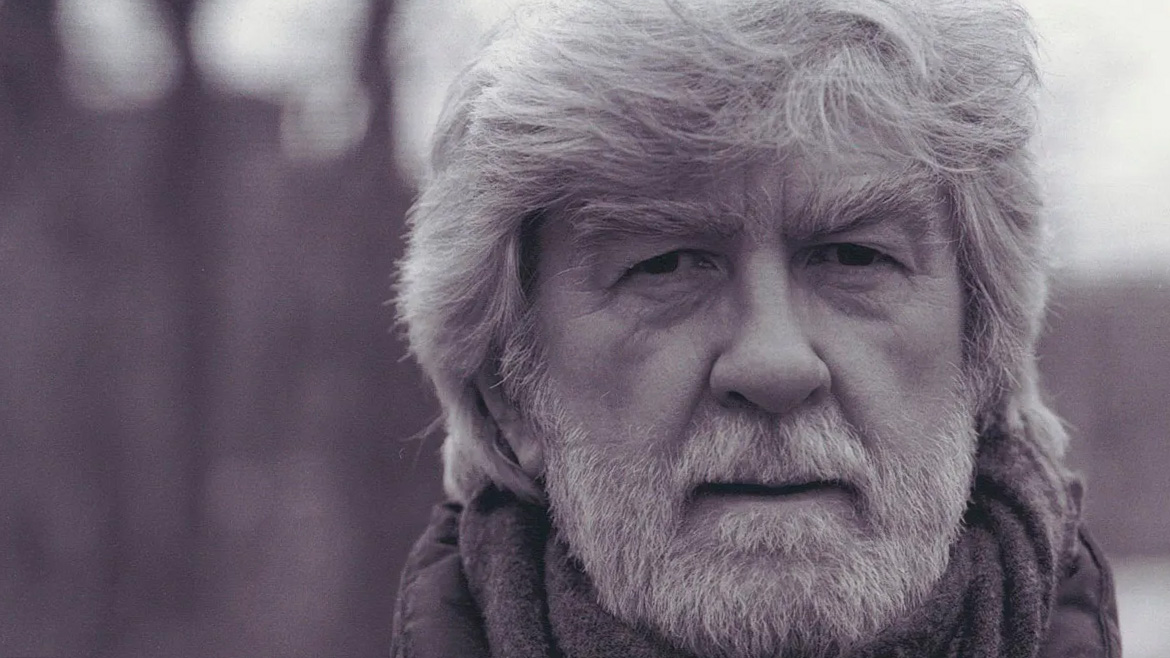Exploring Stanley Plumly’s World: New Digital Archive Offers Insight into Beloved Poet’s Life and Work
October 21, 2024

Curated by English Professor Joshua Weiner, the archive commemorates the late professor and founder of the M.F.A. in creative writing program at UMD.
By Chloe Kim
Among many beloved musings of poet and professor Stanley Plumly, he famously espoused that "there are only six shapes in nature," recalled poet Bonnie Naradzay in a 2020 tribute. His teaching at the University of Maryland reflected his deep connection to the natural world and his belief that “landscape—the ‘nature’ it represents—is at once subject and object, inscape and projection.” In his 2014 English course “Language & Landscape,” he guided students to encounter the ways these six shapes—egg, spiral, circle, meander, branch and hexagon—act in poetry as both independent entities and mirrors for our internal worlds.
Now part of the newly launched Stanley Plumly Memorial Digital Archive, hosted by The Georgia Review, that course syllabus, which includes Plumly’s own hand-drawn illustrations, is among a wealth of poetry, essays, drafts and teaching materials that offer a profound glimpse into the mind of a poet who shaped generations of writers through his devotion to the art of patience and observation.
It’s "a place of tribute, homage and memorial,” said English Professor Joshua Weiner, who began to curate the archive following Plumly’s death in 2019. “In this wonderful way that can only happen in an archive, visitors can look behind the curtain of Stan’s teaching and work … [and get] in touch with the art and spirit of poetry.”
For more than three decades, Plumly animated hallways and classrooms in the Department of English with his deep, rich voice and warm laughter. Originally from rural Ohio, Plumly taught at many universities early in his career before finding a home in Maryland.
His poetry, inspired by the English Romantic poets and artists, particularly John Keats, “summoned the natural world he adored,” according to The New York Times.
Draft of “The Marriage in the Trees,” page 1, from the archive. Finished poem on the Poetry Foundation website.
Plumly’s writing earned him many distinctions, including the Delmore Schwartz Memorial award for “In the Outer Dark” (1970), a National Book Critics Circle Award for “Out-of-the-Body Travel” (1978) and the Los Angeles Times Book Prize and the Paterson Poetry Prize for “Old Heart” (2009), which was also a finalist for the National Book Award.
In the late 1980s, Plumly, alongside English Professor Emeritus Michael Collier, designed the curriculum and pedagogy for a new graduate program in creative writing for the Department of English. The M.F.A. in creative writing launched in September 1989.
Plumly’s impact on student poets was “legendary,” Weiner said. When Weiner arrived at UMD in 2001 to join the creative writing faculty, he and Plumly quickly found artistic and intellectual common ground and began having regular lunches together at South Campus Dining Hall.
“Those were really wonderful times with Stan. He was a mentor to me,” Weiner said.
After Plumly’s death in 2019, Weiner knew “there were so many poets out there who felt their debt and gratitude” and issued a call for submissions to curate “a place that could collect memories, testimonies, homages, tributes” to the late poet.
Over the next few years, poems, essays and recordings of tributes from students and colleagues slowly came together to form the memorial digital archive. “Did you ever try to walk down a hallway or across a crowded room with Stan? How far did you get before someone stopped him, and wanted to talk, or touch his sleeve, or thank him?—for a letter, a book, a blurb, a class, a kindness, any of the many generosities we all felt and received,” said David Baker, poet and former editor of the Kenyon Review, in a his remarks at a panel presented on March 5, 2021 in honor of Plumly.
Simultaneously, the Hornbake Library at UMD acquired physical papers, letters and photographs that Plumly left in his offices at the university and at his home. Weiner worked with the library to include scans of some of the documents and media in the digital archive.
Weiner hopes that viewers come away with a strong sense of the “rigor and richness of the imagination” that Plumly brought to the field of poetry, as well as his far-reaching influence as a teacher.
“There’s a mystery to life that the sciences can’t fathom, and that’s really the job of the poet. Stan, in his teaching and the way he carried himself, embodied that. He conveyed the nobility of that pursuit,” Weiner said.
Photo by Elizabeth Hood


